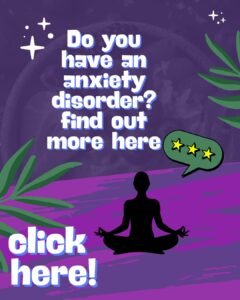Anxiety is a common mental health issue that affects millions of people worldwide. It can manifest in various ways, including persistent worrying, restlessness, and difficulty concentrating. While there are different treatment options available, incorporating self-care practices into your daily routine can significantly help in managing anxiety and promoting overall well-being.
The Power of Self-Care
Self-care involves taking deliberate actions to prioritize your physical, mental, and emotional health. By engaging in activities that promote self-care, you can reduce stress, improve your mood, and enhance your overall quality of life. Self-care is especially crucial for individuals dealing with anxiety, as it provides a sense of control and empowerment over their mental health.
Healthy Sleeping Habits
Adequate sleep is vital for both physical and mental health. Lack of sleep can exacerbate anxiety symptoms and make it difficult to cope with daily stressors. Establishing a consistent sleep routine, creating a calming sleep environment, and practicing relaxation techniques before bed can all contribute to a good night’s sleep.
One way to improve sleep quality is by incorporating the use of natural supplements.
A supplement designed to support healthy sleep patterns, can be a valuable addition to your self-care routine. By promoting relaxation and reducing anxiety.
Importance of Balanced Nutrition
What we eat plays a significant role in our mental health. Consuming a balanced diet that includes nutrient-rich foods can help regulate mood and reduce anxiety symptoms. Avoiding excessive caffeine, sugar, and processed foods is essential, as they can contribute to heightened anxiety levels.
Incorporating self-care habits related to nutrition can involve meal planning, mindful eating, and seeking guidance from a registered dietitian. By nourishing your body with wholesome foods, you can support your mental well-being and reduce anxiety.
Physical Activity and Anxiety
Regular physical activity has been proven to have a positive impact on mental health. Engaging in exercise releases endorphins, which are natural mood-boosting chemicals in the brain. Exercise also helps reduce stress, improve sleep, and increase self-confidence.
Integrating physical activity into your self-care routine can involve activities such as walking, jogging, yoga, or any form of exercise that you enjoy. Aim for at least 30 minutes of moderate-intensity exercise most days of the week to experience the mental health benefits.
Anxiety Disorder: Understanding and Managing the Symptoms
Anxiety disorder is a mental health condition characterized by persistent feelings of worry, nervousness, and fear that can significantly interfere with daily life. People with anxiety disorder often experience symptoms such as heart palpitations, sweating, trembling, and difficulty concentrating. These symptoms can be debilitating and affect quality of life, making it important to seek effective strategies for management and treatment.
To help manage anxiety disorder, it’s essential to access specialized materials and resources. We recommend exploring the material available here, which provides valuable information and tools to better understand the condition and find practical ways to reduce anxiety. This resource can offer insights, management techniques, and additional support to improve your quality of life and promote emotional well-being.












